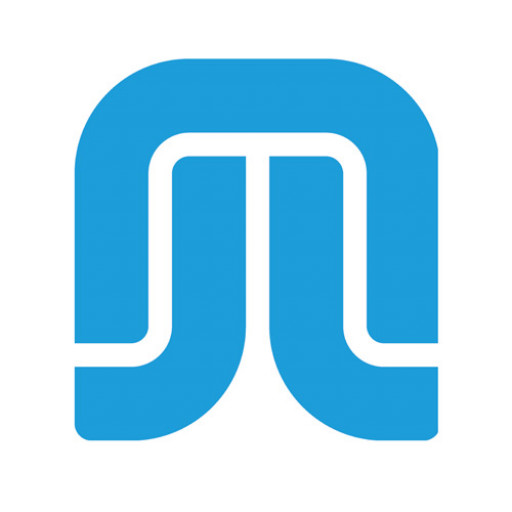Photos of university / #northumbriauni
The Master of Applied Linguistics at The University of Newcastle is a comprehensive postgraduate program designed for students passionate about language, communication, and the science of linguistics. This degree offers an in-depth exploration of language theory, language acquisition, and the practical applications of linguistic research across diverse fields such as education, technology, healthcare, and government. Throughout the course, students will develop advanced understanding of linguistic structures, language development, multilingualism, and intercultural communication, preparing them for a range of career opportunities in language teaching, curriculum design, language assessment, translation, and language policy development. The program combines theoretical knowledge with practical skills, enabling graduates to analyze real-world linguistic issues and develop evidence-based solutions. Students will engage with contemporary research in areas such as psycholinguistics, sociolinguistics, discourse analysis, and language technology. The curriculum is designed to be flexible, catering to students from various backgrounds, including linguistics, education, psychology, and related disciplines. The program emphasizes critical thinking, research methodology, and professional practice, ensuring graduates are well-equipped to contribute to the advancement of linguistics or to pursue further academic research. Whether aiming to enhance language education or to work in emerging fields like speech technology or cross-cultural communication, students will gain the necessary tools and knowledge to succeed. The University of Newcastle provides a supportive learning environment, with access to cutting-edge resources and expert faculty members dedicated to student success. Upon completion, graduates will be prepared for employment in academic, governmental, and private sectors, or for further research and doctoral studies. The Master of Applied Linguistics is ideal for those committed to understanding the complexities of language and making meaningful contributions to society through linguistic expertise.
The NSW Department of Education will recognise graduates from the Master of Applied Linguistics as a English as a Second Language (ESL) teacher, where they also have completed a licensed instruction degree and have been registered since teachers using the NSW Educational Standards Authority (NESA). For recognition in other countries and territories, graduates should contact the Department of Education in the relevant jurisdiction to find out the specific requirements for recognition as an ESL teacher.
- Bachelor Degree in a field area with 1 year relevant work experience
- Or Graduate Certification in a related field area
- Or Homework Honours degree in a related field area. For the purposes of admission, Discipline Areas comprise Linguistics, Education, English, Languages, Psychology and Speech Pathology. Relevant work experience is as a teacher of English as a second/foreign vocabulary.
The University of Newcastle offers a range of financial options for students pursuing their studies in Applied Linguistics. Tuition fees for domestic commencing students are set annually and are subject to change each academic year. These fees are typically payable per semester and differ depending on the level of study and the specific program components. International students should anticipate higher tuition fees, reflecting the cost of international education and associated services. Besides tuition, students should budget for additional costs such as textbooks, learning materials, administrative fees, and potentially accommodation and living expenses if studying on-campus or in Newcastle. To support students financially, the university provides various scholarships, grants, and bursaries that may be based on academic merit, financial need, or other criteria. Prospective students are encouraged to explore eligibility and application procedures through the university’s official scholarship portal. The university also offers payment plans to assist students in managing their tuition fees over the duration of their studies. For domestic students, government loans and financial aid programs may be available, including the HECS-HELP scheme, which allows eligible students to defer payment of tuition fees until they are earning above a certain income threshold. International students are generally required to pay fees upfront or through approved payment plans, with some programs available for partial payment. The university also provides career and employment services that can facilitate part-time work opportunities, helping students to support their studies financially. Students are advised to consult the university’s financial services and student support offices for detailed information about available funding options, application deadlines, and eligibility requirements. Additionally, students should consider personal savings, family support, or external scholarship opportunities to assist with their educational expenses. Overall, the university aims to make higher education accessible and affordable by offering comprehensive financial support programs tailored to diverse student needs.
The Bachelor of Arts in Applied Linguistics at The University of Newcastle is a comprehensive undergraduate program designed to equip students with a deep understanding of language and its practical applications. This degree focuses on the theoretical and practical aspects of language studies, covering areas such as language acquisition, language teaching, linguistics, and language technology. Students have the opportunity to explore diverse topics including phonetics, syntax, semantics, and sociolinguistics, providing a broad foundation in understanding how languages function and evolve. The program emphasizes real-world applications, preparing graduates for careers in language education, translation and interpretation, curriculum development, and language policy. Students may also engage in practical teaching placements and research projects, allowing them to apply their knowledge in authentic settings. The curriculum often includes courses in intercultural communication, language disorders, and digital language learning tools, reflecting the evolving nature of applied linguistics in a globalized world. The program is designed for those passionate about languages and interested in making a tangible impact through language services and education. It supports student development through various workshops, seminars, and collaboration opportunities with language institutions. Upon completion, graduates possess analytical skills, cultural awareness, and professional competencies essential for employment in diverse language-related fields. The University of Newcastle’s state-of-the-art facilities and experienced faculty provide a supportive learning environment. The program also encourages international perspectives, attracting students from around the world and fostering a multicultural campus community. Overall, the Bachelor of Arts in Applied Linguistics aims to produce highly skilled professionals capable of addressing language challenges in society, contributing to effective communication across different contexts, and advancing research and innovation within the field.






